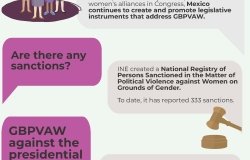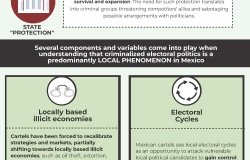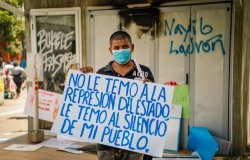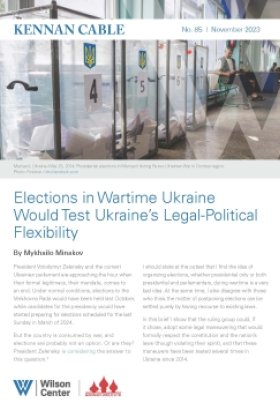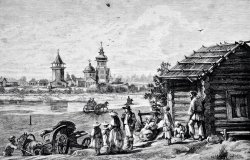#82 Notes on Transitions from Authoritarian Rule in Latin America and Latin Europe
By Kevin J. Middlebrook
From the Introduction
In October 1980, an international group of scholars gathered at the Wye Plantation near Washington, D.C. to examine questions such as these in the context of contemporary and historical cases of political change in Latin America and Southern Europe. While conference participants frequently differed in their judgments regarding the overall characteristics and likely consequences of contemporary transitions from authoritarian rule, they agreed on the importance of these changes and the desirability of conducting investigations which might enhance the prospects for democratic political outcomes. The conference discussions were principally concerned with examining the transition process itself rather than the dynamics and internal structure of established authoritarian regimes. While some of the discussions necessarily considered the origins of efforts at regime change in different countries and the characteristics of the widely varying political outcomes of such transitions, the principal focus of the conference was on the different forces and factors which shaped the transition process.
This rapporteur's report provides a summary of the general themes and competing interpretations which emerged in the course of discussions during the conference. While many participants might agree that a variety of factors affect the process of authoritarian regime transformation in Latin America and Southern Europe, many of the interpretations offered are not easily reconcilable. The same problem is often given a considerably different meaning when viewed through different conceptual lenses. No attempt to reconcile those differences will be made here. On the contrary, the purpose of this report is to highlight the principal areas of agreement and disagreement.
Related Program

Latin America Program
The Wilson Center’s prestigious Latin America Program provides non-partisan expertise to a broad community of decision makers in the United States and Latin America on critical policy issues facing the Hemisphere. The Program provides insightful and actionable research for policymakers, private sector leaders, journalists, and public intellectuals in the United States and Latin America. To bridge the gap between scholarship and policy action, it fosters new inquiry, sponsors high-level public and private meetings among multiple stakeholders, and explores policy options to improve outcomes for citizens throughout the Americas. Drawing on the Wilson Center’s strength as the nation’s key non-partisan policy forum, the Program serves as a trusted source of analysis and a vital point of contact between the worlds of scholarship and action. Read more




